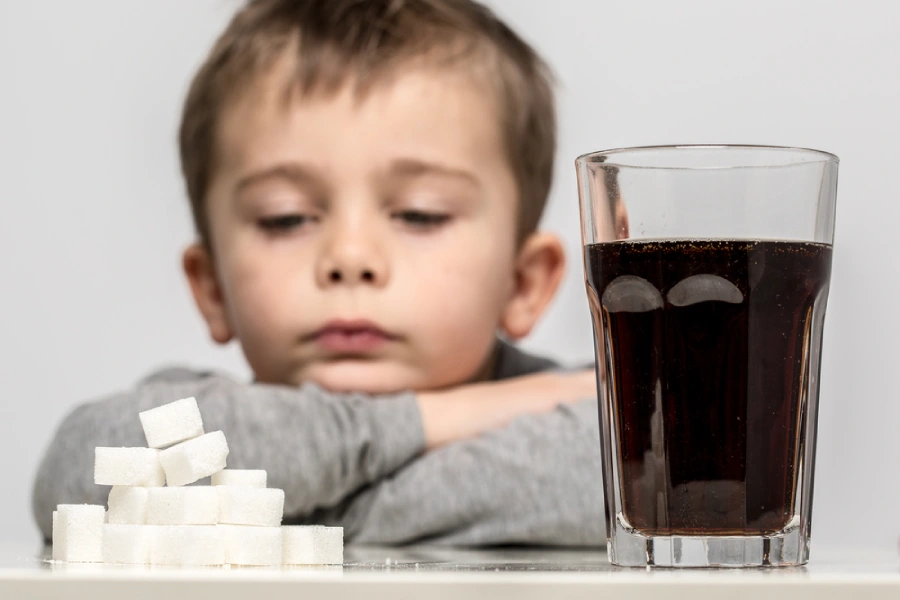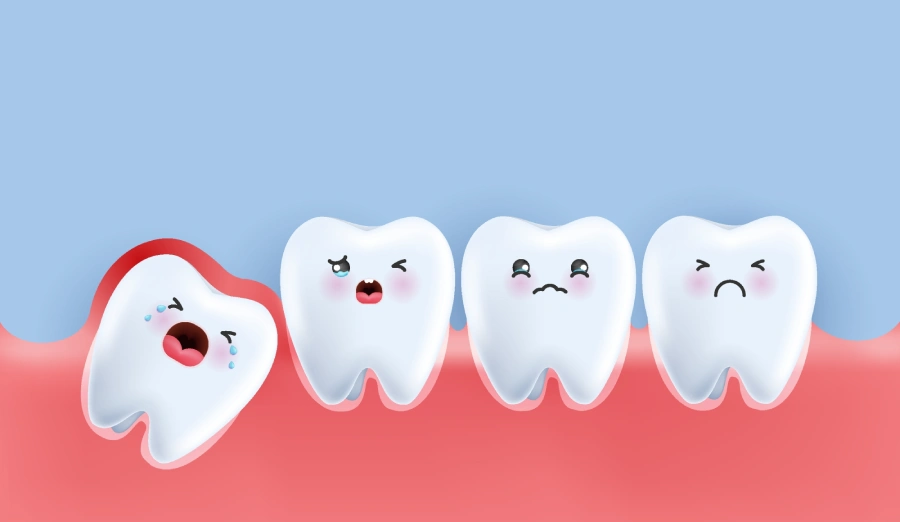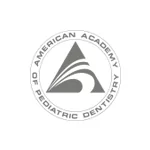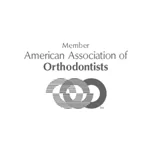There are many reasons your child has bad breath even after brushing their teeth. It can be due to a lack of oral hygiene, dehydration, or something simple you might not think about.
However, more reasons can contribute to smelly breath. Chronic bad breath, also known as Halitosis, can commonly affect children.
Why Does My Child’s Breath Smell Even After Brushing Teeth?
For many reasons, your child might have bad breath after brushing.
Lack of Flossing
Lack of flossing or not flossing at all is often one of the main reasons for what causes bad breath in kids.
Flossing the teeth helps to remove bacteria that is found between the teeth. Flossing regularly helps to control plaque buildup between the teeth, which eliminates and fights bacteria found in the gums between the teeth. When food particles become trapped between the teeth, it leads to bad breath.
Dehydration
Your child may have bad breath after brushing because they are dehydrated. Your child needs to drink plenty of water. Without enough water, the amount of saliva in the mouth decreases. The decrease in saliva causes an increase in odor.
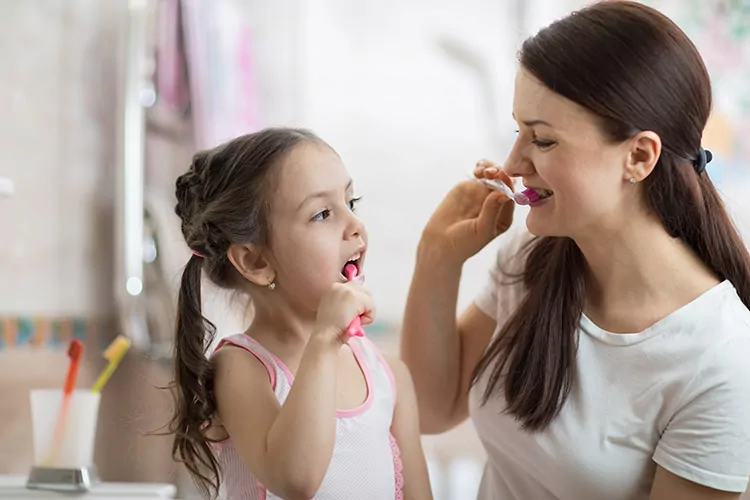
Saliva helps to keep the mouth clean, as it naturally cleans the oral environment. Drinking plenty of water is an excellent way to stay hydrated and avoid bad breath.
Eating Smelly Foods
Some of the best foods have smelly odors, such as foods that contain garlic or onions. After eating foods containing these ingredients, your child should rinse their mouth with water or brush their teeth.
Your child can also chew sugar-free gum, like Trident, to help freshen up their breath. Sugar-free gum can help to remove any food particles in the mouth after eating, which also helps to prevent bad breath. Gum also helps create saliva in the mouth to keep away odor.
Why Does My Child’s Breath Stink After Brushing?
There are likely other reasons besides lack of flossing, dehydration, and smelly foods that can cause bad breath after brushing.
Tooth Decay and Dental Infections
Your child may have constant bad breath due to tooth decay or a dental infection. If your child has a cavity, there are harmful bacteria in the mouth that causes the fresh breath to turn into bad breath.
Tooth decay and infections in the mouth allow an overgrowth of bacteria to accumulate in the mouth, resulting in bad breath.
Mouth Breathing
If your child breathes through their mouth instead of their nose, it produces poor saliva. This creates a similar issue with bacteria overgrowth as dehydration. Your child might breathe out of their mouth if they are congested, have seasonal allergies, or have a sinus infection.
If your child’s nose remains stuffy even when they are no longer sick, they will breathe out of their mouth because the nose is blocked. Schedule an appointment with your child’s doctor if your child breathes out of their mouth at all times, even when they are not sick.
Gum Disease
If your child has gum disease, also known as gingivitis, their breath can smell like sulfur or rotten eggs.
Gum disease causes the bacteria in the mouth to release chemicals with an unpleasant odor. Children with gum disease may also have swollen or red gums and bleed when brushing their teeth.
Medical Condition
Your child may have bad breath if they have certain medical conditions, such as tonsillitis, sinusitis, bronchitis, or other respiratory infections.
If your child has a more serious medical condition, such as uncontrolled diabetes or kidney disease, they may also experience chronic bad breath.
How Do I Get Rid of Toddler Bad Breath?
You should try the following solutions to get rid of your kid’s bad breath.
Good Dental Hygiene
Good dental hygiene is the best way to get rid of and prevent bad breath in your child. Your child should brush their teeth twice daily and floss at least once daily.
Regular Trips to the Dentist
Just like adults, children should see their dentist every six months. Some dentists even recommend visiting every three months, depending on your child’s oral health.
Switching Toothpastes
Switching kinds of toothpaste can help prevent and keep away bad breath in kids. Toothpaste that focuses on whitening teeth often contains ingredients that dry out the tongue, allowing bacteria to increase in the mouth.
Toothpaste with heavy baking soda can dry out the tongue too much, causing a decrease in saliva. The best kids’ toothpaste for bad breath, like Colgate or Crest, can help keep their breath fresh.
Fluoride Treatments
Fluoride treatments at the dentist can help to reduce tooth decay and fight infection in the mouth.
Fluoride varnish, used during a fluoride treatment, is a mineral that helps to strengthen tooth enamel. Fluoride varnish can protect your child’s teeth for several months and should be reapplied every three to six months.
Mouthwash
While your child might prefer bubble gum or berry-flavored mouthwash, a minty mouthwash will help with bad breath.
Some adult mouthwashes might be too harsh for children, so using a gentle one for kids is best. Mouthwash is only a temporary fix for bad breath, so it should be used in addition to other solutions.
Change the Toothbrush
Using a heavily used toothbrush can make bad breath worse, as the bristles on the brush work less effectively to remove plaque and oral bacteria.
Your child should change their toothbrush every three to four months to ensure their breath stays fresh and their teeth are being properly cleaned.
How to Get Your Kids Excited About Brushing?
To get your child excited about brushing and oral hygiene, you can try a few things.
- Allow them to pick out their own toothbrush
- Explain why it is crucial to brush their teeth and how it helps keep their mouth healthy
- Give them a holder for their toothbrush to stay in when they are not using it
- Let them practice brushing teeth on you, as they can see all the grooves, curves, and edges of your teeth
- Use a toothbrush timer or play a two-minute song when brushing
- Brush your teeth together and establish a routine
Final Thoughts
There are many ways you can prevent bad breath in your child and get rid of it for good. It is important to keep up on regular trips to the dentist and establish a regular brushing and flossing routine to help keep away bad breath after brushing.
If your child’s bad breath is persistent even after trying these solutions, schedule a pediatric dentist appointment for a cleaning and discuss the halitosis concerns with your child’s dentist.
Learn more about our Pediatric Dental Services at The Super Dentists. Schedule an appointment today and bring your family to a Super Dentists location near you!

